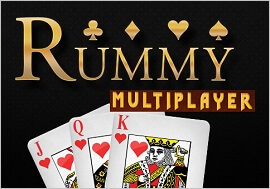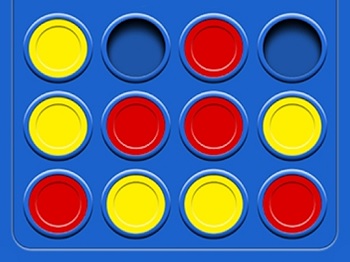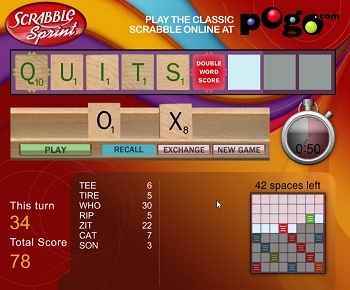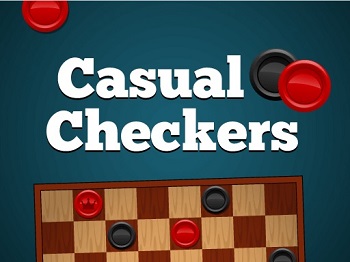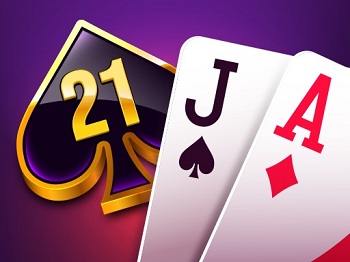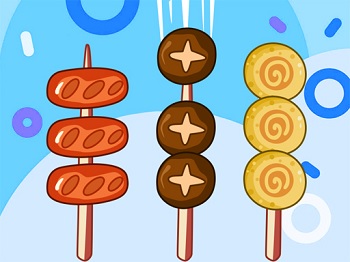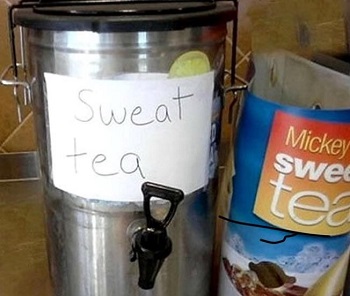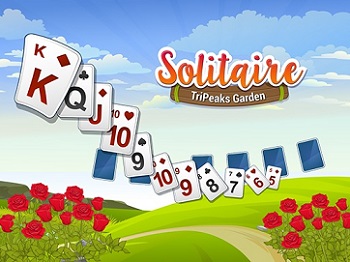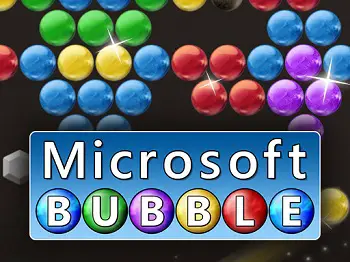- Home
- About Douglas
- Site Updates
What's New
This page tracks recent updates to the site, including new brain games, revised articles, and other improvements.
Subscribe via RSS using your favorite reader (Feedly, Inoreader, Newsblur). Right-click the button at left to copy the feed link.
Looking for memory tips? Start with Quick Memory Tips or How to Get a Better Memory.
Feb 05, 2026
New "Printable Puzzles" Hub
I've launched a Printable Puzzles section with dozens of free logic puzzles you can download as PDFs: Sudoku, Kakuro, Futoshiki, Slitherlink, Crosswords, and more. Every puzzle prints cleanly on one page with solutions provided separately.
Free for personal use, classrooms, senior centers, memory care facilities, homeschools, clubs, churches, workplaces, and anywhere else people enjoy a good brain challenge. More puzzle types are on the way!
Dec 25, 2025
New: Memory Glossary
I've added a Memory Glossary covering 70+ key terms in memory science, from "chunking" to "hippocampus" to "spaced repetition." Each definition is written in plain English with context on why the concept matters for memory improvement. If you've ever hit an unfamiliar term on this site (or anywhere else), this is your reference. New to memory improvement? Start with Quick Memory Tips.
Oct 20, 2025
Vex 9 - Parkour Concentration Game!
I'm pleased to announce the addition of Vex 9 as the latest free brain game on Memory-Improvement-Tips.com.
Vex 9 is here -- the next evolution in the legendary stickman platformer series! Take your parkour skills to the limit as you run, jump, and slide your way through a brand-new set of Acts filled with dangerous traps, bombs, and other deadly surprises.
For the first time, take to the skies with the powerful new Jetpack! Vex 9 also includes the brand-new Infinite mode. How far can you get without losing?
Platform games train important brain skills, including concentration, visual acuity, and reaction time. Play these games often to give your brain a boost.
Like all the brain games on my site, these online games are free to play anytime. No logging in, no registering. Just go to the game page and start playing.
Click the link below to visit the game page and give these games a try.
Jul 13, 2025
New! Geometry Arrow Concentration Game
I'm pleased to announce the addition of Geometry Arrow as the latest free brain game on Memory-Improvement-Tips.com.
Ready for a game that's as fun as it is good for your brain? Meet the Geometry Arrow game, a simple but super-engaging concentration challenge that will have you hooked. BONUS: You can also play Geometry Vibes from this page, the 3D colorful version!
How to play: Use your mouse button or finger (on mobile) to guide a little arrow through a world of geometric shapes, tapping to make it rise, a bit like that famous bird game.
But don't let the simple controls fool you. The game gets more challenging as you go, so you'll need to stay sharp and focused to get through the tricky obstacle courses.
These arrow games are more than just a way to pass the time; they're an engaging tool for honing your focus, boosting your memory, and mastering your reflexes.
Geometry Arrow and Geometry Vibes are part of the free online brain games collection. These games are mobile-friendly and should work on your desktop or laptop computer, tablet, or phone.
Concentration games help to increase focus, concentration, and memory. Play these games often to give your brain a boost.
Like all the brain games on my site, these online games are free to play anytime. No logging in, no registering. Just go to the game page and start playing.
Click the link below to visit the game page and give these games a try.
Jul 10, 2025
Rummy Game Updated
The Rummy card game has been improved. Several enhancements were implemented recently to help perfect this game. It's now more fun than ever!
Rummy is a lively card game where players race to form sets of matching cards, like three queens or a run of 4-5-6 in hearts, by cleverly drawing and discarding. It's a thrilling mix of strategy and luck that keeps everyone hooked until the last card is played.
Summary of the changes:
To discard, click the card, and then click an icon in the bottom left of the screen.
The game now has a timer. If you don't discard in the remaining time, the game chooses a random card and discards it for you.
To lay down cards, or add to existing melds, first click your chosen cards to select them. An arrow then appears for you to click to place the cards.
It's possible to use your own player names.
Possibly (not sure): Aces remaining at the end of the game are scored 11.
Confirmed: The game plays with only one pack (one deck), which is great for counting and remembering the cards.
Because of the timer, the game is a little faster.
Visit the Rummy card game page for more details.
Rummy is part of the free online brain games collection. These games are mobile-friendly and should work on your desktop or laptop computer, tablet, or phone.
Card games train important brain skills, including attention, short-term memory, and mental flexibility. Play these games often to give your brain a boost.
Like all the brain games on my site, these online games are free to play anytime. No logging in, no registering. Just go to the game page and start playing.
Click the link below to visit the game page and give these games a try.
Jun 03, 2025
New! Solitaire Story 5 - Free Online Brain Game
I'm pleased to announce the addition of Solitaire Story 5 as the latest free brain game on Memory-Improvement-Tips.com.
The highly anticipated 5th installation of one of the most popular free Solitaire Card Games of all time!
How to play: Draw cards one at a time from your stockpile. Select cards one higher or one lower in value than your drawn card to remove it from the playing field.
To complete a level, remove all the cards from the playing field without running out of cards from your stockpile. Complete the daily missions and events to unlock new deck designs and prizes that help you solve those tricky levels.
Solitaire Story 5 is part of the free online brain games collection. These games are mobile-friendly and should work on your desktop or laptop computer, tablet, or phone.
Card games train important brain skills, including attention, short-term memory, and mental flexibility. Play these games often to give your brain a boost.
Like all the brain games on my site, these online games are free to play anytime. No logging in, no registering. Just go to the game page and start playing.
Click the link below to visit the game page and give these games a try.
Continue reading "New! Solitaire Story 5 - Free Online Brain Game"
Mar 20, 2025
Vex X3M2 - New Intense Levels!
I'm pleased to announce the addition of Vex X3M2 as the latest free brain game on Memory-Improvement-Tips.com.
Building on the classic Vex experience, VEX X3M2 introduces intense levels packed with new hazards and mechanics.
New features like kite gliding let you soar over gaps, while teleportation portals help you navigate tricky sections. Floating platforms and shifting obstacles keep you on your toes, making every race an unpredictable thrill ride.
Earn stars to unlock high-performance bike skins and conquer each track in easy and hard mode to prove yourself as the ultimate Vex champion!
X3M2 Instructions: Press up (or W) to accelerate, use left (or A) and right (or D) to tilt your bike and press backwards (or S) to brake. Look at your surroundings and pay attention to all the traffic signs.
Vex X3M is part of the free online brain games collection. These games are mobile-friendly and should work on your desktop computer, tablet, or phone.
Puzzle games train important brain skills, including problem-solving, thinking speed, and mental flexibility. Play these games often to give your brain a boost!
Like all the brain games on my site, this online game is free to play anytime. No logging in, no registering. Just go to the game page and start playing.
Click the link below to visit the game page and give this game a try.
Nov 27, 2024
Ultimate Connect 4 - Free Online Brain Game
I'm pleased to announce the addition of Ultimate Connect 4 as the latest free brain game on Memory-Improvement-Tips.com.
Play the classic Connect 4 game in 1-Player mode against the computer or 2-Player mode with a friend in the same room. Customize the board with 3 to 10 rows and columns.
Whether you're new to the game or a seasoned player, this Connect 4 game online is designed to provide lots of fun and a solid mental workout.
Ultimate Connect 4 is part of the free online brain games collection. These games are mobile-friendly and should work on your desktop computer, tablet, or phone.
Board games train important brain skills, including concentration, visual perception, and strategic thinking. Play these games often to give your brain a boost!
Like all the brain games on my site, this online game is free to play anytime. No logging in, no registering. Just go to the game page and start playing.
Click the link below to visit the game page and give this game a try.
Continue reading "Ultimate Connect 4 - Free Online Brain Game"
Nov 09, 2024
Pirates Mahjong - Free Online Solitaire Game
I'm pleased to announce the addition of Pirates Mahjong as the latest free brain game on Memory-Improvement-Tips.com.
Welcome to Pirates Mahjong, a delightful twist on the classic mahjong tile-matching game, set in a world of pirates, adventure, and treasure.
This fun and relaxing game invites you into a hidden pirate's cave where stacks of tiles decorated with cartoonish pirate faces await your skill and strategy. With a calming soundtrack playing in the background, this version of free mahjong solitaire offers 60 challenging levels for you to explore and conquer.
Pirates Mahjong is part of the free online brain games collection. These games are mobile-friendly and should work on your desktop computer, tablet, or phone.
Mahjong tile games train important brain skills, including spatial reasoning, visual perception, and strategic thinking. Play these games often to give your brain a boost!
Like all the brain games on my site, this online game is free to play anytime. No logging in, no registering. Just go to the game page and start playing.
Click the link below to visit the game page and give this game a try.
Continue reading "Pirates Mahjong - Free Online Solitaire Game"
Oct 24, 2024
Mahjong Connect - Free Online Brain Game
I'm pleased to announce the addition of Mahjong Connect as the latest free brain game on Memory-Improvement-Tips.com.
This freeware Mahjong Connect game is a relaxing tile-matching game. This game includes 12 levels of Mahjong Connect challenges.
Whether you are looking for a quick mental break or a way to unwind after a busy day, this version delivers an engaging puzzle experience that keeps your brain active without the need for complicated strategies.
Unlike traditional Mahjong, where players draw and discard tiles to build sets, Mahjong Connect requires you to match identical tiles directly on the game board. The challenge lies in the fact that you can only connect tiles with a straight or uninterrupted path made up of two or three lines.
Mahjong Connect is part of the free online brain games collection. These games are mobile-friendly and should work on your desktop computer, tablet, or phone.
Mahjong tile games train important brain skills, including spatial reasoning, visual perception, and strategic thinking. Play these games often to give your brain a boost!
Like all the brain games on my site, this online game is free to play anytime. No logging in, no registering. Just go to the game page and start playing.
Click the link below to visit the game page and give this game a try.
Oct 20, 2024
100 Free Retro Flash Brain Games!
Well, it took quite a while but it's finally done! I've successfully added 100 free retro flash brain games to Memory-Improvement-Tips.com.
If you've visited my site over the years, you may remember classic brain games like Scrabble Sprint, 3D Logic, Aqua Bubble, and more. Those games had to be retired when Adobe Flash was canceled by big tech, but now they're back.
I've slowly been adding the classics to the Retro Brain Games page, and finally, I've reached the 100-game goal. You'll be pleased to hear these games have no in-game ads.
These games are playable on desktop/laptop computers. They probably won't work on mobile phones or tablets.
Also, the Retro Flash Games page might load a little slowly. That's normal. There's a lot of free content on that page!
Sep 07, 2024
Vex X3M - Free Exciting Vex Hill-Racing Game
I'm pleased to announce the addition of Vex X3M as the latest free brain game on Memory-Improvement-Tips.com.
VEX X3M a new extreme hill racing game with bike stunts and obstacles is here!
Enjoy the classic Vex elements, but this time you will be racing your way to the finish line. Perform crazy bike stunts in 30 unique levels filled with danger, from spikes and shooting knives to rockets and lasers.
Reach the finish safely and obtain stars to unlock new unique bike skins. Complete all levels in easy and hard mode to crown yourself a master VEX X3M Rider. Start your engines and enjoy VEX X3M.
X3M Instructions: Press up (or W) to accelerate, use left (or A) and right (or D) to tilt your bike and press backwards (or S) to brake. Look at your surroundings and pay attention to all the traffic signs.
Vex X3M is part of the free online brain games collection. These games are mobile-friendly and should work on your desktop computer, tablet, or phone.
Puzzle games train important brain skills, including problem-solving, thinking speed, and mental flexibility. Play these games often to give your brain a boost!
Like all the brain games on my site, this online game is free to play anytime. No logging in, no registering. Just go to the game page and start playing.
Click the link below to visit the game page and give this game a try.
Continue reading "Vex X3M - Free Exciting Vex Hill-Racing Game"
Aug 29, 2024
Mahjong Story 2 - Free Online Brain Game
I'm pleased to announce the addition of Mahjong Story 2 as the latest free brain game on Memory-Improvement-Tips.com.
Mahjong Story 2 is an addictive mahjong tiles game that takes you on a journey through various worlds and challenges. With over 1000 levels, immerse yourself in a unique and fun gameplay experience!
This free mahjong tiles game has beautiful graphics, relaxing music and intuitive controls, which makes it accessible to players of any skill level. In Mahjong Story 2, you'll encounter power-ups and obstacles that can help or hinder your progress.
Use power-ups like the Shuffle button or the Hint button to help you match tiles more quickly, and watch out for obstacles like locked or frozen tiles that can make the game more challenging.
Mahjong Story 2 is part of the free online brain games collection. These games are mobile-friendly and should work on your desktop computer, tablet, or phone.
Mahjong tile games train important brain skills, including spatial reasoning, visual perception, and strategic thinking. Play these games often to give your brain a boost!
Like all the brain games on my site, this online game is free to play anytime. No logging in, no registering. Just go to the game page and start playing.
Click the link below to visit the game page and give this game a try.
Aug 25, 2024
Jewels Blitz 3, 4, 5, & 6 - Free Online Games!
I'm pleased to announce the addition of Jewels Blitz editions 3-6 as the latest free brain games on Memory-Improvement-Tips.com.
Welcome to the Jewels Blitz free jungle jewels game collection. Here you can play Jewels Blitz 3, Jewels Blitz 4, Jewels Blitz 5, and Jewels Blitz 6. Match jewels for points and to clear levels.
The Jewels Blitz games all work the same way. They are jewel-matching games where you line up gems to remove them from the board.
The Jewels Blitz games have an Aztec Jungle theme, both with the visuals and the game music, and they are free to play. That's why I call them a free jungle jewels game.
Jewels Blitz is part of the free online brain games collection. These games are mobile-friendly and should work on your desktop computer, tablet, or phone.
Jewel-matching games like Jewels Blitz train important brain skills, including spatial reasoning, visual perception, and strategic thinking. Play these games often to give your brain a boost!
Like all the brain games on my site, this online game is free to play anytime. No logging in, no registering. Just go to the game page and start playing.
Click the link below to visit the game page and give this game a try.
Continue reading "Jewels Blitz 3, 4, 5, & 6 - Free Online Games!"
Aug 22, 2024
Checkers RPG - Online PVP Battle!
I'm pleased to announce the addition of Checkers RPG Battle as the latest free brain game on Memory-Improvement-Tips.com.
With this online Checkers RPG game, the classic board game is reinvented with role-playing elements. Choose your own hero, upgrade their skills, and battle against other players in real-time PvP matches.
This online checkers game includes lots of cool Role-Playing Game (RPG) features.
There are global and Top 20 player rankings, and the character Profile screen tracks your stats, including rank, number of games won, winning percentage, and most wins. Use your gold coins to purchase different characters.
This online checkers game is part of the free online brain games collection. These games are mobile-friendly and should work on your desktop computer, tablet, or phone.
Board games like Checkers RPG train important brain skills, including concentration, visual perception, and strategic thinking. Play these games often to give your brain a boost!
Like all the brain games on my site, this online game is free to play anytime. No logging in, no registering. Just go to the game page and start playing.
Click the link below to visit the game page and give this game a try.
Aug 21, 2024
Daily Solitaire Challenge - New Free Brain Game!
I'm pleased to announce the addition of Daily Solitaire Challenge as the latest free brain game on Memory-Improvement-Tips.com.
Select a calendar date and start playing. Earn crowns to collect the monthly trophy. You can also play in unlimited solitaire mode.
There's a Bronze trophy (15 crowns), Silver trophy (20 crowns), and the Gold trophy (28 crowns). The progress bar at the top of the monthly calendar page shows your progress toward the trophies.
This online solitaire game is part of the free online brain games collection. These games are mobile-friendly and should work on your desktop computer, tablet, or phone.
Card games like card solitaire train important brain skills, including attention, short-term memory, and mental flexibility. Play these games often to give your brain a boost!
Like all the brain games on my site, this online game is free to play anytime. No logging in, no registering. Just go to the game page and start playing.
Click the link below to visit the game page and give this game a try.
Continue reading "Daily Solitaire Challenge - New Free Brain Game!"
Aug 12, 2024
Casual Checkers - New Free Brain Game!
I'm pleased to announce the addition of Casual Checkers as the latest free brain game on Memory-Improvement-Tips.com.
Feeling unfocused? This free online checkers game, Casual Chess, can sharpen your attention in no time!
This checkers board game is part of the free online brain games collection. These games are mobile-friendly and should work on your desktop computer, tablet, or phone.
Board games like checkers and chess train important brain skills, including concentration, visual perception, and strategic thinking. Play these games often to give your brain a boost!
Like all the brain games on my site, this online game is free to play anytime. No logging in, no registering. Just go to the game page and start playing.
Click the link below to visit the game page and give this game a try.
Jul 05, 2024
Lucky Vegas Blackjack - New Free Brain Game!
I'm pleased to announce the addition of Lucky Vegas Blackjack as the latest free brain game on Memory-Improvement-Tips.com.
Welcome to Lucky Vegas Blackjack! Play Blackjack solo or against two computer bots. Or play against two friends in the same room (local multiplayer).
This online blackjack game is part of the free online brain games collection. These games are mobile-friendly and should work on your desktop computer, tablet, or phone.
Card games like blackjack train important brain skills, including attention, short-term memory, and mental flexibility.. Play these games often to give your brain a boost!
Like all the brain games on my site, this online game is free to play anytime. No logging in, no registering. Just go to the game page and start playing.
Click the link below to visit the game page and give this game a try.
Continue reading "Lucky Vegas Blackjack - New Free Brain Game!"
Apr 28, 2024
Merge Foods Puzzle - New Free Brain Game!
I'm pleased to announce the addition of Merge Foods Puzzle as the latest free brain game on Memory-Improvement-Tips.com.
In this fun logic game, merge foods together, with a twist. Match three-of-kind to upgrade that item to the next higher type of food. Keep going until you reach the goal for that level!
Merge Foods Puzzle is part of the free online brain games collection. These games are mobile-friendly and should work on your desktop computer, tablet, or phone.
Puzzle games like Merge Foods Puzzle train important brain skills, including problem-solving, thinking speed, and mental flexibility. Play these games often to give your brain a boost!
Like all the brain games on my site, this online game is free to play anytime. No logging in, no registering. Just go to the game page and start playing.
Click the link below to visit the game page and give this game a try.
Continue reading "Merge Foods Puzzle - New Free Brain Game!"
Mar 23, 2024
Solitaire Classic - Free Game
I'm pleased to announce the addition of Solitaire Classic as the latest free brain game on Memory-Improvement-Tips.com.
Here's a Solitaire Classic free game you can play anytime. The most popular card game in the world, classic Solitaire, also known as Patience, is a great way to relax and train your brain.
Most importantly – this online strategy game helps train your brain and keep your mind sharp.
Solitaire Classic is part of the free online brain games collection. These games are mobile-friendly and should work on your desktop computer, tablet, or phone.
Card games like Solitaire Classic train important brain skills, including attention, short-term memory, and mental flexibility. Play these games often to give your brain a boost!
Like all the brain games on my site, this online game is free to play anytime. No logging in, no registering. Just go to the game page and start playing.
Click the link below to visit the game page and give this game a try.
Feb 24, 2024
Gin Rummy - Free Online Brain Game
I'm pleased to announce the addition of Gin Rummy as the latest free brain game on Memory-Improvement-Tips.com.
Gather matching cards or sequences before your opponent does. Rack up points and win the game!
Place your cards in groups of the same rank, or in sequential order of the same suit. Score points by eliminating these combinations from your hand.
The game ends when a player reaches the target score, typically set at 100 points.
Gin Rummy is part of the free online brain games collection. These games are mobile-friendly and should work on your desktop computer, tablet, or phone.
Card games like Gin Rummy train important brain skills, including attention, short-term memory, and mental flexibility. Play these games often to give your brain a boost!
Like all the brain games on my site, this online game is free to play anytime. No logging in, no registering. Just go to the game page and start playing.
Click the link below to visit the game page and give this game a try.
Nov 25, 2023
Garden Tales 4 - Free Online Brain Game
I'm pleased to announce the addition of Garden Tales 4 as the latest free brain games on Memory-Improvement-Tips.com.
Garden Tales games are colorful match-3 adventures with - you guessed it - a garden theme. There are thousands of levels to complete.
Help Willy the garden gnome complete three-of-a-kind of fruits, vegetables, mushrooms, and flowers. Clear each screen for points and stars and coins.
The Garden Tales games are part of the free online brain games collection. These games are mobile-friendly and should work on your desktop computer, tablet, or phone.
Match-3 games like Garden Tales train important brain skills, including concentration and visual perception. Play these games often to give your brain a boost!
Like all the brain games on my site, this online game is free to play anytime. No logging in, no registering. Just go to the game page and start playing.
Click the link below to visit the game page and give this game a try.
Oct 26, 2023
Vex 8 - New Online Brain Game
I'm pleased to announce the addition of Vex 8 as the latest free brain game on Memory-Improvement-Tips.com.
Vex 8 is the newest installment in the ever-popular Vex franchise. Dexterity, speed, and skill are keywords in this thrilling platformer -- filled with obstacles like the new red-green light traps.
Discover nine acts and try to find the secret areas to collect trophies. The game also includes the brand new Infinite mode.
Platform games train important brain skills including concentration, visual acuity, and reaction time. Play these games often to give your brain a boost.
Like all the brain games on my site, these online games are free to play anytime. No logging in, no registering. Just go to the game page and start playing.
Click the link below to visit the game page and give these games a try.
Sep 26, 2023
Merge Harvest - New Free Brain Game
I'm pleased to announce the addition of Merge Harvest as the latest free brain game on Memory-Improvement-Tips.com.
This is a fun merging game with a lot of unique items to create. Merge new items, complete various tasks and follow the plot.
You're in for adventure and a lot of fun quests! (Note: Mergest Kingdom is also on this page.)
Merge Harvest is part of the free online brain games collection. These games are mobile-friendly and should work on your desktop or laptop computer, tablet, or phone.
Merge games train important brain skills including visual perception and logical reasoning. Play these games often to give your brain a boost.
Like all the brain games on my site, these online games are free to play anytime. No logging in, no registering. Just go to the game page and start playing.
Click the link below to visit the game page and give these games a try.
Sep 16, 2023
Marbles Sorting Solitaire - New Free Brain Game
I'm pleased to announce the addition of Marbles Sorting Solitaire as the latest free brain game on Memory-Improvement-Tips.com.
Try to sort the different marbles in the tubes until all similar marbles stay in the same tube.
Puzzle games train important brain skills including problem solving, thinking speed, and mental flexibility. Play these games often to give your brain a boost.
Like all the brain games on my site, these online games are free to play anytime. No logging in, no registering. Just go to the game page and start playing.
Click the link below to visit the game page and give these games a try.
Continue reading "Marbles Sorting Solitaire - New Free Brain Game"
Sep 04, 2023
Solitaire Story 4 - New Free Brain Game
I'm pleased to announce the addition of Solitaire Story 4 as the latest free brain game on Memory-Improvement-Tips.com.
The highly anticipated 4th installation of one of the most popular free Solitaire Card Games of all time!
Foxy, the game's cute little character, will take you on a journey to new destinations, fantastic landscapes, and famous landmarks.
Visit distant countries including Australia, Antigua and Barbuda, Antarctica, Peru, Switzerland, the Netherlands, Majorca, and the Easter Island in Chile.
Card games train important brain skills including attention, short-term memory, and mental flexibility. Play these games often to give your brain a boost.
Like all the brain games on my site, these online games are free to play anytime. No logging in, no registering. Just go to the game page and start playing.
Click the link below to visit the game page and give these games a try.
Jul 18, 2023
Vex Challenges - Free Online Brain Game
I'm pleased to announce the addition of Vex Challenges as the latest free brain game on Memory-Improvement-Tips.com.
Put your skills to the test in the newest online Vex game where the timer counts down instead of up.
Try to get to the finish within the allotted time, and don't forget to pick up the stars on the way! Vex Challenges is just as gripping and thrilling as before, but includes a brand new way to play.
The game includes 75 custom levels, a hidden Challenge Mode, new skins, and a soundtrack that evolves as you progress.
Platform games train important brain skills including concentration, visual acuity, and reaction time. Play these games often to give your brain a boost.
Like all the brain games on my site, these online games are free to play anytime. No logging in, no registering. Just go to the game page and start playing.
Click the link below to visit the game page and give these games a try.
Mar 28, 2023
Hangman with Buddies - Free Online Brain Game
I'm pleased to announce the addition of Hangman with Buddies as the latest free brain game on Memory-Improvement-Tips.com.
Hangman is a classic word-guessing game that requires a mix of logical thinking, vocabulary knowledge, and a bit of luck.
Guess the hidden word and prevent the stick man from falling into the crocodile-infested river. Learn new words while improving your guessing skills.
You can also set up a private room with passcode. With your private room, you can play hangman online against your friends anywhere in the world!
Hangman with Buddies is part of the free online brain games collection. These games are mobile-friendly and should work on your desktop or laptop computer, tablet, or phone.
Word games train important brain skills including vocabulary, memory, and visual perception. Play these games often to give your brain a boost.
Like all the brain games on my site, these online games are free to play anytime. No logging in, no registering. Just go to the game page and start playing.
Click the link below to visit the game page and give these games a try.
Continue reading "Hangman with Buddies - Free Online Brain Game"
Mar 11, 2023
Jetpack Joyride - Free Online Concentration Game
I'm pleased to announce the addition of Jetpack Joyride as the latest free brain game on Memory-Improvement-Tips.com.
It's Jetpack Joyride! This is an endless runner game.
Equip cool jetpacks, suit up in stylish costumes, and ride crazy vehicles in Barry's endless running quest to beat the scientists to the end of the lab.
Jetpack Joyride is part of the free online brain games collection. These games are mobile-friendly and should work on your desktop or laptop computer, tablet, or phone.
Endless runner games train important brain skills including concentration, spatial awareness, and reaction time. Play these games often to give your brain a boost.
Like all the brain games on my site, these online games are free to play anytime. No logging in, no registering. Just go to the game page and start playing.
Click the link below to visit the game page and give these games a try.
Continue reading "Jetpack Joyride - Free Online Concentration Game"
Feb 05, 2023
Memory Visualization Example: Perigee
Perigee means closest approach to Earth (of the Moon, for example); apogee means furthest distance away. To not get these backward, notice that peri- sounds like "pear".
Now imagine a silly mental image of pears falling to Earth like meteors. This reminds you perigee means the closest approach to Earth.

When memorizing factual information, create silly "sound-alike" mental images as memory hooks. It's powerful!
Jan 31, 2023
Mergest Kingdom Free Online Game
I'm pleased to announce the addition of Mergest Kingdom as the latest free brain game on Memory-Improvement-Tips.com.
In Mergest Kingdom, merge together hundreds of objects in a land full of challenging quests.
Collect and harvest resources. Design your own island!
Mergest Kingdom is part of the free online brain games collection. These games are mobile-friendly and should work on your desktop or laptop computer, tablet, or phone.
Merge games train important brain skills including visual perception and logical reasoning. Play these games often to give your brain a boost.
Like all the brain games on my site, these online games are free to play anytime. No logging in, no registering. Just go to the game page and start playing.
Click the link below to visit the game page and give these games a try.
Dec 01, 2022
The Return of (Some) Flash Brain Games
In an amazing turn of events, some of the old Adobe Flash brain games now work again! To play them, visit the new Ruffle Flash Games page.
Old favorites like Scrabble Sprint, Brain Follow, Emerald Thief, Curveball, Original Tetris, and more were thought to be lost forever with the demise of Adobe Flash in 2021.
But a dedicated group of volunteers has created a new, safer Flash Player called Ruffle. The Ruffle Player can run the old Adobe Flash games in your browser, just like the Adobe Flash Player once did.
You don't even need to download any plug-ins. The Ruffle games work automatically, with the Ruffle Player code running behind the scenes.
Ruffle is still under development, so only some of the old Flash games work for now. I've collected games that do run on a single page for your enjoyment.
These Ruffle Flash brain games run on desktop computers and laptops only. They probably won't work if you try to play them on a tablet or mobile phone.
If you miss the old Adobe Flash games, visit the new Ruffle Flash Games page for a trip down memory lane. Have fun!
Nov 20, 2022
Solitaire Story Tripeaks - Free Online Card Game
I'm pleased to announce the addition of the Solitaire Story Tripeaks series as the latest free brain games on Memory-Improvement-Tips.com.
In Solitaire Story 3, the game’s main cute little character, Foxy, will take you on a journey through distant countries, fantastic landscapes, and famous landmarks.
Enjoy Daily Missions, Weekly Air Balloon Challenges, and dozens of new card designs!
If you wish, you can also play the earlier versions, Solitaire Story Tripeaks 1 & 2.
The Solitaire Story Tripeaks games are part of the free online brain games collection. These games are mobile-friendly and should work on your desktop computer, tablet, or phone.
Card games train important brain skills, including concentration and logical reasoning. Play these games often to give your brain a boost!
Like all the brain games on my site, these online games are free to play anytime. No logging in, no registering. Just go to the game page and start playing.
Click the link below to visit the game page and give these games a try.
Continue reading "Solitaire Story Tripeaks - Free Online Card Game"
Nov 06, 2022
Whack-a-Mole Multiplayer - Free Concentration Game
I'm pleased to announce the addition of Whack-a-Mole with Buddies as the latest free brain games on Memory-Improvement-Tips.com.
Play whack-a-mole against a friend anywhere in the world!
Then complete against your friend in a timed whack-a-mole game. Whoever gets the most points wins.
Whack-a-mole is part of the free online brain games collection. These games are mobile-friendly and should work on your desktop computer, tablet, or phone.
Whack-a-mole games train important brain skills, including concentration and reaction time. Play these games often to give your brain a boost!
Like all the brain games on my site, this online game is free to play anytime. No logging in, no registering. Just go to the game page and start playing.
Click the link below to visit the game page and give this game a try.
Continue reading "Whack-a-Mole Multiplayer - Free Concentration Game"
Nov 04, 2022
Vex 7 - Free Parkour Concentration Game
I'm pleased to announce the addition of Vex 7 as the latest free brain games on Memory-Improvement-Tips.com.
Play Vex 7, an online game packed with action and a unique style. Use parkour moves to leap across the deadly obstacles with your stickman. Avoid the spikes, shooting knives, and falling blocks.
The Vex games are part of the free online brain games collection. These games are mobile-friendly and should work on your desktop computer, tablet, or phone.
Parkour games like Vex train important brain skills, including concentration and reaction time. Play these games often to give your brain a boost!
Like all the brain games on my site, this online game is free to play anytime. No logging in, no registering. Just go to the game page and start playing.
Click the link below to visit the game page and give this game a try.
Oct 29, 2022
Garden Tales - Free Match-3 Brain Games
I'm pleased to announce the addition of the Garden Tales series as the latest free brain games on Memory-Improvement-Tips.com.
Garden Tales games are colorful match-3 adventures with - you guessed it - a garden theme. There are thousands of levels to complete.
Help Willy the garden gnome complete three-of-a-kind of fruits, vegetables, mushrooms, and flowers. Clear each screen for points and stars and coins.
The Garden Tales games are part of the free online brain games collection. These games are mobile-friendly and should work on your desktop computer, tablet, or phone.
Match-3 games like Garden Tales train important brain skills, including concentration and visual perception. Play these games often to give your brain a boost!
Like all the brain games on my site, this online game is free to play anytime. No logging in, no registering. Just go to the game page and start playing.
Click the link below to visit the game page and give this game a try.
Sep 22, 2022
Mental Math at the Register

To stay sharp, look for ways to exercise your brain in daily life. Mental math while you are out-and-about is a great example.
Solving math problems in your head trains quantitative intelligence (Gq). It also requires focused attention.
I play a math coin game at the store sometimes when paying for small purchases. I'll carry an assortment of small coins in my pocket for this purpose.
One such game: "Receive multiples of 25 cents in change."
Recently I bought an Americano at my local coffee shop. That's my favorite coffee drink. Splash of heavy cream and two Stevias. Total owed $2.98.
Time to pay. Not with three one dollar bills. I'd be burdened with two more pennies, and not train my brain.
Instead a mental math challenge!
I prefer the "counting down" method. It's the opposite of the counting-up method used by cashiers to make change.
Here's the thought process. Multiples of 25 cents are zero, 25, 50, and 75. For the coffee I owe 98 cents. The next-lowest multiple of 25 is therefore 75 cents.
I count down from 98, starting with pennies. Dropping from 98 to 95 is three pennies. Now I have options. I can drop 95 to 75 with two dimes or four nickels or two nickels and a dime.
I get out three one dollar bills and hand the cashier $3.23. The cash register checks my math: $3.23 - $2.98 = $0.25. I'm handed a quarter. Victory!
I'm glad to get rid of the small coins of little value, especially the pennies. It’s a good way to use up the small change I've thrown into a drawer.
Is this game trivial? No. All mental challenges are beneficial. Even small ones.
They force you to pay attention, to concentrate, to focus. And in this case, to calculate.
Consider the alternative: To passively not use your brain, as when swiping a credit card or handing over three one-dollar bills. Even a little counting-down game is a plus.
If you need practice counting coins, play the free Cash Back money counting game here on my site.
During the course of your day, look around for opportunities to challenge your brain. Be creative and have fun. Stay sharp!
Sep 16, 2022
Why Bother with Correct Spelling?
Some time ago, a visitor asked me why correct spelling is important. After all, misspelled words can usually still be recognized.
What difference does shifting a few letters around actually make?
The answer: Having a single accepted spelling for a word streamlines communication and prevents confusion.
Here are a few reasons why careless spelling is bad:
Misspellings can actually change the meaning of the word. These misspellings are confusing and sometime amusing.
See the image of "Sweat Tea" above. Yuck, no thank you!
Consider extreme cases where the word is unrecognizable due to the misspelling.
The reader would have to stop reading and waste time trying to figure out what the word meant. They might even fail to decipher the word altogether.
Spelling words the right way shows you are an educated person. You communicate carefully, with an eye for detail.
In contrast, poor spelling may cause the reader to wonder if your thinking and reasoning are also inexact. That you are not to be taken seriously.
So there you have it. Three great reasons to be exact with your spelling.
Take the time to memorize the correct spellings of words. It's worth it!Sep 09, 2022
Trouble Remembering Routes: Your Solutions?

A surprising number of visitors claim they have severe trouble remembering routes. They struggle to recall simple street directions. They become lost in places they've lived many years.
For such people, Google Maps and GPS are not enough. And they are frustrated. Getting lost is not fun!
Trouble with directions has been linked to ADHD and other learning disorders. Traveling a route does require memory and sustained attention. But the cause is uncertain, and there is no magic fix.
Do you suffer this problem? Please share any solutions you've found in your daily life. Send a message through my Contact Me page describing the methods you use.
Once I've gathered solutions, I'll write an article listing the most effective ideas. Learning of creative options that work for others should be very helpful to those everywhere who struggle with routes.
Aug 09, 2022
Retrieval Practice: A Powerful Daily Habit

Recalling facts helps strengthen memory. You can do this deliberately, as a form of memory exercise. This is known as "retrieval practice."
Choose a set of facts to practice. It can be anything. For example, I recently decided to memorize the Greek alphabet.
Use memory techniques to establish initial learning. For a few minutes every day, recall the information from memory without looking. Recite it out loud, write it down, or do both. This is active recall, also known as the testing effect.
No need to schedule time for this. I fit my recall practice into odd moments of downtime. When writing, I often use whatever is on hand, like a scrap of paper. Afterward I discard it.
Practice daily. Retrieval is a free and powerful memory booster. Give it a try!
Apr 28, 2022
Shaun the Sheep - Free Puzzler Games Online
I'm pleased to announce the addition of Shaun the Sheep Puzzlers as the latest free brain games on Memory-Improvement-Tips.com.
I've got 5 episodes of the famous game series right here, unblocked, for you to enjoy.
Challenge yourself with fun puzzlers including Sheep Stack, Baahmy Golf, Chick 'n' Spoon, Flock Together, and Alien Athletics.
Shaun the Sheep games are part of the free online brain games collection. These games are mobile-friendly and should work on your desktop computer, tablet, or phone.
Physics puzzle games like Shaun the Sheep train important brain skills, including concentration, logical reasoning, and reaction time. Play these games often to give your brain a boost!
Like all the brain games on my site, this online game is free to play anytime. No logging in, no registering. Just go to the game page and start playing.
Click the link below to visit the game page and give this game a try.
Continue reading "Shaun the Sheep - Free Puzzler Games Online"
Feb 27, 2022
Bubble Tanks 3 - Free Concentration Game
I'm pleased to announce the addition Bubble Tanks 3 as the latest free brain game on Memory-Improvement-Tips.com.
Start with a tiny bubble tank. Defeat bubble enemies and grow your tank in size and power. The longer you play the game, the bigger and more powerful your bubble tank can become!
Bubble Tanks 3 is part of the free online brain games collection.
This game is mobile-friendly and should work on your desktop computer, tablet, or phone.
Concentration games like Bubble Tanks 3 train important brain skills like attention span and mental focus. Play these games often to give your brain a boost.
Like all the brain games on my site, this online game is free to play anytime. No logging in, no registering. Just go to the game page and start playing.
Click the link below to visit the game page and give this game a try.
Dec 05, 2021
Tripeaks Solitaire - Play Free Online
I'm pleased to announce the addition of three Tripeaks Solitaire games as the latest free brain games on Memory-Improvement-Tips.com.
The first game, TryPeaks, is a well-made Tripeaks solitaire game with a basic theme. The second game, Tripeaks Garden, is more elaborate.
In Tripeaks Garden, solve hundreds of levels along with your trusty cat companion. Your cat helps you along the journey of filling your greenhouses with beautiful flowers.
The third game, Tripeaks Deep Sea, provides yet another twist. Explore the mysteries of the ocean!
These are HTML5 Games. That means you don't need the Adobe Flash Player or any other browser plug-in to play them. The games should work in your browser automatically.
Card solitaire games like Tripeaks train important brain skills like attention, short-term memory, and mental flexibility. Play these games often to give your brain a boost.
Like all the brain games on my site, these online games are free to play anytime. No logging in, no registering. Just go to the game page and start playing.
Click the link below to visit the new game page, and give this game a try.
Nov 23, 2021
Bob the Robber Platform Game - Play Free
I'm pleased to announce the addition of the Bob the Robber thief game as the latest free brain game on Memory-Improvement-Tips.com.
Help Bob find treasure and avoid getting caught. There are seven episodes and many levels to solve.
Bob visits Japan and Russia and even helps save the city! So he's not all bad.
Bob the Robber is an HTML5 Game. That means you don't need the Adobe Flash Player or any other browser plug-in to play it. The game should work in your browser automatically.
Platform games like Bob the Robber train important brain skills like concentration, logical reasoning, and reaction time. Play these games often to give your brain a boost.
Like all the brain games on my site, this online game is free to play anytime. No logging in, no registering. Just go to the game page and start playing.
Click the link below to visit the new game page, and give this game a try.
Nov 04, 2021
Many More Snail Bob Physics Puzzlers - Play Free Online
I've greatly expanded the episodes of Snail Bob available on Memory-Improvement-Tips.com, to a total of 6 episodes! All are playable from the main Snail Bob game page.
The episodes include Construction Site (the original), Dangerous Forest, Love Story, Winter Story, Fantasy Story, and Island Story.
Snail Bob is a fun puzzler platform game. He gets trapped in various situations, and it's your job to help him escape. You'll need to pull levers, push buttons, and so on in the correct order to allow Snail Bob to pass through obstacles.
Snail Bob is an HTML5 Game. That means you don't need the Adobe Flash Player or any other browser plug-in to play it. The game should work in your browser automatically.
Platform games like Snail Bob train important brain skills like concentration, logical reasoning, and reaction time. Play these games often to give your brain a boost.
Like all the brain games on my site, this online game is free to play anytime. No logging in, no registering. Just go to the game page and start playing.
Click the link below to visit the new game page, and give this game a try.
Continue reading "Many More Snail Bob Physics Puzzlers - Play Free Online"
Oct 21, 2021
Vex 6 Platform Puzzler Game - Play Free Online
I'm pleased to announce the addition of the Vex 6 game as the latest free brain game on Memory-Improvement-Tips.com.
Play Vex 6 online for free. This game adds to the existing collection of Vex games #3-5 available on the same page.
VEX 6 is the latest addition in the series of this stickman-parkour-platformer. Jump and slide your stickman through 9 new Acts and 9 new Hard Acts.
Each Act ends with it's final stage to complete: "Vexation." Make sure to collect the coins on your way to unlock 64 different skins for your stickman.
Want to earn extra coins? Come back to VEX 6 every day to complete the daily tasks and play the daily bonus level.
VEX 6 is visually stunning as it's now running on a higher resolution and 60fps!
Vex 6 is an HTML5 Game. That means you don't need the Adobe Flash Player or any other browser plug-in to play it. The game should work in your browser automatically.
Platform games like Vex train important brain skills like concentration, logical reasoning, and reaction time. Play these games often to give your brain a boost.
Like all the brain games on my site, this online game is free to play anytime. No logging in, no registering. Just go to the game page and start playing.
Click the link below to visit the new game page, and give this game a try.
Continue reading "Vex 6 Platform Puzzler Game - Play Free Online"
Oct 10, 2021
Fireboy and Watergirl - Free Puzzle Game, 6 Episodes
I'm pleased to announce the addition of Fireboy and Watergirl as the latest free brain game on Memory-Improvement-Tips.com.
Play Fireboy and Watergirl online, for free! I've got 6 episodes of the famous video game series right here, unblocked, including Episode #6 - Fairy Tales.
Fireboy and Watergirl is a platform game. Help the two characters Fireboy and Watergirl work as a team to make it through each level. Fireboy can walk through hot stuff, and Watergirl likes water. Avoid the green goo, navigate obstacles, and solve puzzles to reach the exit.
Fireboy and Watergirl is an HTML5 Game. That means you don't need the Adobe Flash Player or any other browser plug-in to play it. The game should work in your browser automatically.
Platform games like Fireboy and Watergirl train important brain skills like concentration, logical reasoning, and reaction time. Play these games often to give your brain a boost.
Like all the brain games on my site, this online game is free to play anytime. No logging in, no registering. Just go to the game page and start playing.
Click the link below to visit the new game page, and give this game a try.
Continue reading "Fireboy and Watergirl - Free Puzzle Game, 6 Episodes"
Sep 10, 2021
Microsoft Bubble - Free Concentration Game
I'm pleased to announce the addition of Microsoft Bubble as the latest free brain game on Memory-Improvement-Tips.com.
Jump into bubble shooting fun with bright colors, breathtaking backgrounds, and thrilling bubble action. Use skill and strategy to match three or more bubbles of the same color.
Earn coins and add power-ups to solve tricky puzzles. Unlock new and exciting levels with unique objectives and majestic mountainsides.
This is the official Bubble game by Microsoft and is free-to-play online here.
Microsoft Bubble is an HTML5 Game. That means you don't need the Adobe Flash Player or any other browser plug-in to play it. The game should work in your browser automatically.
Concentration games like Microsoft Bubble train important brain skills like focus, concentration, and attention span. Play these games often to give your brain a boost.
Like all the brain games on my site, this online game is free to play anytime. No logging in, no registering. Just go to the game page and start playing.
Click the link below to visit the new game page, and give this game a try.
Continue reading "Microsoft Bubble - Free Concentration Game"
Sep 02, 2021
Atari Pong - Free Focus Game
I'm pleased to announce the addition of Atari Pong as the latest free brain game on Memory-Improvement-Tips.com.
Atari Pong is a table tennis arcade game featuring two-dimensional graphics. This is a replica of the classic Pong, one of the first computer games ever created.
This is the official Pong game by Atari and is free-to-play online here.
Atari Pong is an HTML5 Game. That means you don't need the Adobe Flash Player or any other browser plug-in to play it. The game should work in your browser automatically.
Arcade games like Pong train important brain skills including concentration, visual perception, and reaction time. Play these games often to give your brain a boost.
Like all the brain games on my site, this online game is free to play anytime. No logging in, no registering. Just go to the game page and start playing.
Click the link below to visit the new game page, and give this game a try.
Published: 02/07/2007
Last Updated: 12/25/2025

Newest / Popular
Multiplayer
Board Games
Card & Tile
Concentration
Math / Memory
Puzzles A-M
Puzzles N-Z
Time Mgmt
Word Games
- Retro Flash -
Also:
Bubble Pop
• Solitaire
• Tetris
Checkers
• Mahjong Tiles
•Typing
No sign-up or log-in needed. Just go to a game page and start playing! ![]()
Free Printable Puzzles:
Sudoku • Crosswords • Word Search

Hippocampus? Working memory? Spaced repetition?
Look up memory or brain terms in the A-Z glossary of definitions.



